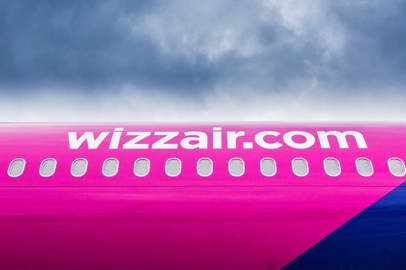27 November 2023
IATA: global framework for accelerating aviation’s decarbonization
IATA awaits government policies to decarbonise aviation, as agreed at the Third Conference on Alternative Aviation Fuels (CAAF/3) hosted by ICAO in Dubai
The International Air Transport Association (IATA, represents some 300 airlines comprising 83% of global air traffic) looks forward to governments delivering the supportive policies needed to enable aviation’s decarbonization, as agreed at the Third Conference on Aviation Alternative Fuels (CAAF/3) hosted by The International Civil Aviation Organization (ICAO) in Dubai.
CAAF/3 delivered critical agreement on:
- A global framework to promote Sustainable Aviation Fuel (SAF) production in all geographies around the world. The aim is that aviation fuel in 2030 is 5% less carbon intensive than fossil fuel used today by the industry.
• Acknowledging that certain States have the capacity to progress as a faster pace, and that others do not.
• Capacity building, a “Finvest Hub”, and voluntary technology transfer, are all among the measures put forward to ensure that all countries can partake in a global SAF market.
• The need for a solution that can foster a global SAF market while enabling airlines to claim the environmental attributes of their SAF purchases against their decarbonization obligations, based on a global and robust SAF accounting framework.
• Capacity building, a “Finvest Hub”, and voluntary technology transfer, are all among the measures put forward to ensure that all countries can partake in a global SAF market.
• The need for a solution that can foster a global SAF market while enabling airlines to claim the environmental attributes of their SAF purchases against their decarbonization obligations, based on a global and robust SAF accounting framework.
“Governments have understood the critical role of SAF to achieve net zero emissions for aviation by 2050. The CAAF/3 results add a vision on the shorter, 2030, time horizon that is ambitious. To that end, the CAAF/3 agreement signals to the world in no uncertain terms the need for policies that enable real progress. There is no time to lose. IATA now expects governments to urgently put the strongest possible policies in place to unlock the full potential of a global SAF market with an exponential increase in production,” said Willie Walsh, IATA’s Director General.
Demand Signal and Policies to Support SAF Production
This is necessary because airlines’ demand for SAF, in line with their commitment to net zero carbon emissions by 2050, vastly exceeds the availability of SAF today, which is limited to 0.2% of airlines’ jet fuel consumption in 2023. Airlines have sent major demand signals to the SAF production market:
• All SAF produced in 2022 was bought, at an additional cost to the industry of around USD 500 million, as SAF is priced at a significant premium over the price of jet fuel.
• There are increasing examples of airlines vertically integrating into the supply chain, with some committing equity and risk capital into SAF projects.
• Airlines have entered into forward purchase agreements for SAF worth around a total of USD 45 billion, well in excess of today’s SAF availability.
“We need to see governments acting on the CAAF/3 declaration with policies that expand SAF production in all its shapes and forms. Despite unequivocal demand signals, the SAF production market is not developing fast enough. We need SAF everywhere in the world, and to that end, the right supportive policies – policies that can stimulate production, promote competition, foster innovation, and attract financing - must be put in place today”, said Walsh.
IATA calls on governments to adopt policies to maximize SAF production globally by:
• Enabling producers to take fullest advantage of local feedstock availability
• Enacting positive – not punitive - policies
• Balancing existing and future potential policy support across different energy sources and preferably strive to favor renewable energies and ensure SAFs’ fair share of the latter
• Recognize that the road to success in to transform aviation and achieve reaching net zero carbon emissions is a collective responsibility.
• Enabling producers to take fullest advantage of local feedstock availability
• Enacting positive – not punitive - policies
• Balancing existing and future potential policy support across different energy sources and preferably strive to favor renewable energies and ensure SAFs’ fair share of the latter
• Recognize that the road to success in to transform aviation and achieve reaching net zero carbon emissions is a collective responsibility.
“The goal is maximizing SAF production everywhere with positive, not punitive, policy measures. Airlines are ready with open arms to catch the resulting SAF production. While airlines are at the sharp end of decarbonization, they cannot bear the burden alone. CAAF/3 has again made it clear that aviation’s decarbonization will require the wholehearted and united efforts of the entire value chain and governments as we all focus on net zero by 2050. To be perfectly clear, where government money leads, private money will follow. It is absolutely essential that governments play their part, and we will certainly play ours”, said Marie Owens Thomsen, IATA’s Senior Vice President Sustainability and Chief Economist.
Edited by editorial staff, Avion Tourism Magazine
Text source: Copyright © IATA Press
Photo: Copyright © Sisterscom.com / Depositphotos
You might be interested in
Sustainability

Sustainable Mobility
Dubai Airports achieves ACI Level 4 accreditation
DXB among the few airports in the world awarded for the absolute reduction of emissions and for the ability to drive environmental change
Sustainability

Sustainable Mobility
Wizz Air's Net Zero Strategy
The company launches its "Flying Towards Net Zero" strategy, which focuses on sustainable aviation fuel (SAF) as a key lever for decarbonization
Sustainability

Sustainable Mobility
Volotea with TotalEnergies for sustainable fuel
An agreement for the supply of sustainable aviation fuel (SAF) for use on flights departing from French airports


